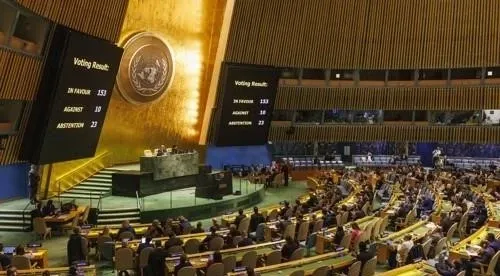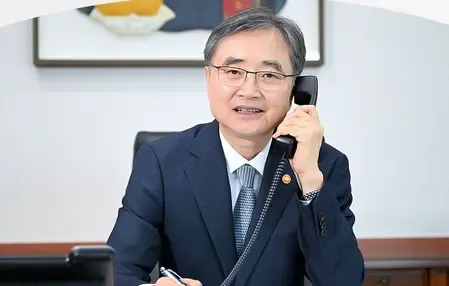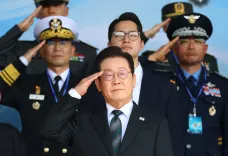How Does the UNGA Commemorate the Int'l Day Against Nuclear Tests?

Synopsis
Key Takeaways
- The UNGA emphasizes the need for nuclear disarmament.
- The International Day against Nuclear Tests aims to raise global awareness.
- Key officials stress moral and strategic reasons for banning tests.
- Nuclear technology has peaceful applications that benefit society.
- Progress towards a nuclear-weapon-free world is essential.
United Nations, Sep 4 (NationPress) The UN General Assembly (UNGA) convened to observe and advocate for the International Day against Nuclear Tests.
During the conference on Wednesday, Izumi Nakamitsu, the UN Undersecretary-General and High Representative for Disarmament Affairs, delivered remarks on behalf of UN Secretary-General Antonio Guterres. She stated, “Today’s commemoration occurs in a world fraught with conflict, distrust, and the ominous presence of nuclear weapons.”
She emphasized that the growing distrust among nations and the increasing investments in nuclear arsenals render the prohibition of all nuclear explosive testing not just a procedural requirement but a moral and strategic necessity.
Robert Floyd, the executive secretary of the Comprehensive Nuclear-Test-Ban Treaty (CTBT) Organization, remarked that 80 years after the first nuclear test and the bombings of Hiroshima and Nagasaki during World War II, no nuclear weapon has been detonated in conflict globally, according to reports from Xinhua news agency.
He noted that over the next half-century, approximately 2,000 nuclear explosions occurred, averaging one test each week during the Cold War.
Since the inception of the CTBT in 1996, there have been fewer than a dozen tests, marking the treaty as a victory for science, multilateralism, and humanity.
Vivian Okeke, director of the International Atomic Energy Agency Liaison Office in New York, stated that since its establishment, the agency has been dedicated to preventing the proliferation of nuclear weapons while ensuring that nuclear science and technology are accessible for peaceful uses.
Nuclear technology plays a vital role in diagnosing and treating diseases such as cancer, addressing hunger, protecting the environment, and providing clean energy to drive progress. Okeke emphasized, “It is crucial that nuclear technology is utilized safely and securely.”
In December 2009, during its 64th session, the UNGA declared August 29 as the International Day against Nuclear Tests, adopting a unanimous resolution aimed at raising awareness and educating the public on the impacts of nuclear weapon test explosions and the necessity for their cessation as a means to achieve a nuclear-weapon-free world.









